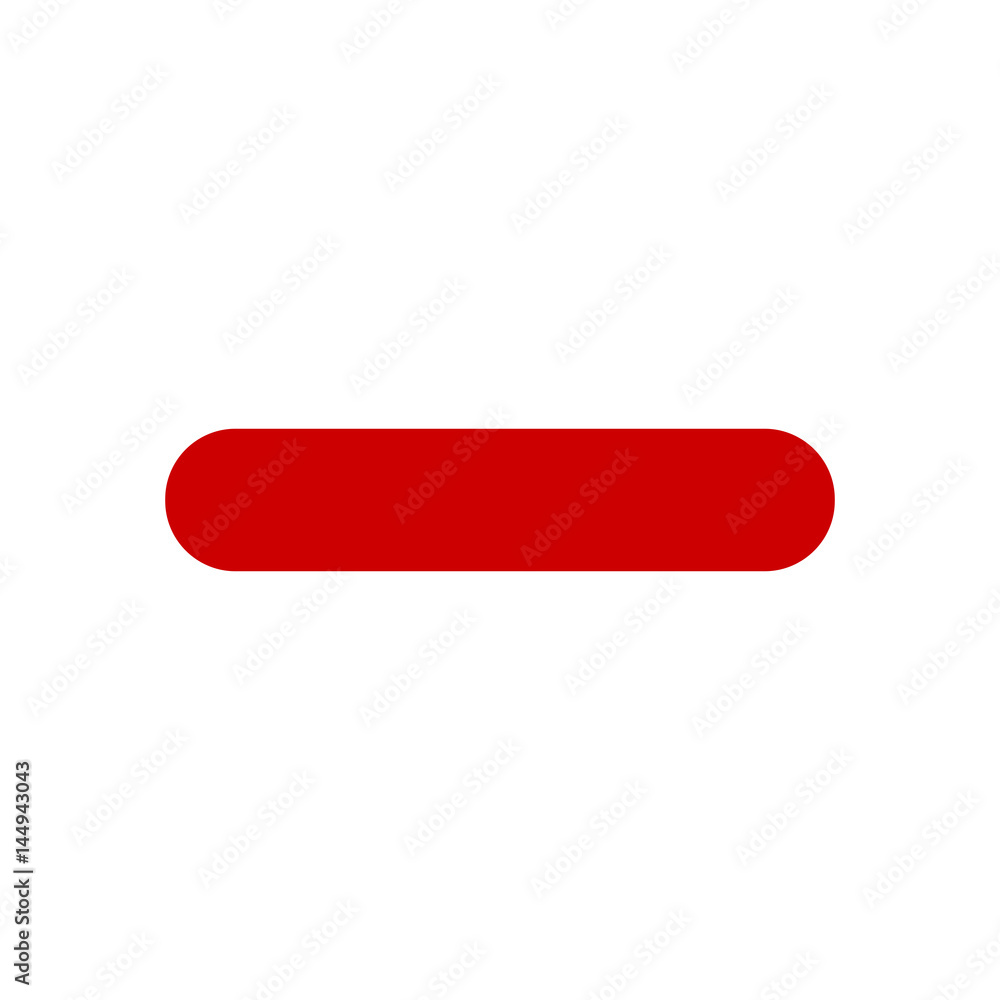Understanding Minus-Cal: The Story Of A Fat-Blocking Supplement
Staying healthy and keeping fit can feel like a real challenge for many people, can't it? It's almost as if everyone is trying to find that one thing that makes it easier. With a significant portion of the population facing issues like obesity, there's a pretty big need for helpful solutions, you know, things that might make managing weight a little less daunting. This is where products claiming to offer a simpler path often come into the picture, promising a way to support your health goals.
One such product that gained some attention was Minus-Cal. It presented itself as a nutritional startup, offering protein bars and supplements that aimed to assist with weight management. The core idea behind it was quite compelling, really: a snack bar that could help you lose weight by actually blocking the absorption of some fat from your food, which, for many, sounded like a very appealing concept.
This particular brand, Minus-Cal, stepped into the spotlight when its founders brought their vision to a popular television show where entrepreneurs seek investment. Their appearance sparked quite a bit of discussion, creating both hope and, as a matter of fact, a fair amount of skepticism too. It's a story that, in a way, highlights the complexities of the health food industry and the journey from a promising idea to its eventual outcome.
Table of Contents
- The Minus-Cal Idea
- How Minus-Cal Claimed to Work: The Choleve Factor
- Minus-Cal's Time on Shark Tank
- The Skepticism and the Outcome
- Understanding the "Minus" in Mathematics
- Frequently Asked Questions About Minus-Cal
- Final Thoughts on Minus-Cal's Journey
The Minus-Cal Idea
Minus-Cal, the brainchild of entrepreneurs Barrett Jacques and Crom Carmichael, started its journey in 2017. They saw a clear and urgent need, as you know, with many people trying to stay fit and healthy but finding it really difficult. The founders aimed to tackle this challenge head-on, offering a product that could, in some respects, make the path to wellness a bit smoother for folks.
Their company put forward protein bars and other supplements. The main promise was quite straightforward: these products were supposed to help with weight loss. They suggested that by eating Minus-Cal items, you could, apparently, block some of the fat your body would otherwise absorb. This sounded like a pretty appealing way to approach weight management for a lot of people looking for practical solutions.
The entire concept revolved around a unique, patented ingredient. This special component was the key to their claim of blocking fat. So, the idea was that you could enjoy a snack, like a protein bar, and it would actually work to diminish the amount of fat your body took in. It was, in a way, a novel approach to the everyday struggle of maintaining a healthy body weight.
How Minus-Cal Claimed to Work: The Choleve Factor
At the very heart of Minus-Cal's offerings was a special ingredient called Choleve. This was, as a matter of fact, their patented component, the secret sauce, if you will, that supposedly made their products work. The company claimed that Choleve operated by actually blocking some of the fat you consumed from being absorbed by your body, which is a pretty significant claim for a food product.
So, the way it was presented, this ingredient was designed to interfere with the usual process of fat absorption. Imagine, if you will, that Choleve somehow acted as a barrier, or perhaps more like a filter, reducing the amount of dietary fat that your system would normally take in. This mechanism was, arguably, what set Minus-Cal apart from other protein bars or supplements on the market at the time.
The Minus-Cal line included protein bars and various supplements, all featuring this key ingredient. The idea was that these items wouldn't just be regular snacks; they would be functional foods, specifically formulated to assist with weight loss through this fat-blocking action. It was, in a way, a very direct attempt to address a common desire for weight management without drastically altering one's entire diet, just by adding these particular products.
When we think about the name "Minus-Cal," it's kind of interesting, isn't it? The word "minus" itself carries a very specific meaning, typically suggesting a reduction or a subtraction. In mathematics, for example, the minus symbol is used to represent subtraction. This idea of "diminished by" or "taking away" really aligns with the product's claimed function of reducing fat absorption.
The minus operation is a fundamental concept in mathematics, often employed to determine the numerical difference between two numbers. Similarly, Minus-Cal was, in essence, trying to create a "difference" in your caloric intake by subtracting or diminishing the fat absorbed. It's a clever naming choice that, in a way, visually and conceptually reinforces the product's purpose.
Just like a minus sign indicates a negative expression or the subtraction of two numbers, Minus-Cal aimed to have a "negative" impact on your fat intake, meaning it would lessen it. This connection to a basic mathematical operation, which is so widely understood, probably helped make the product's goal seem very clear and straightforward to potential customers, too it's almost a universal symbol for reduction.
Minus-Cal's Time on Shark Tank
Minus-Cal, with its innovative weight loss supplement concept, made an appearance on the popular television show Shark Tank. This was during Season 11, specifically Episode 1, where entrepreneurs get a chance to present their businesses to a panel of potential investors. It's a pretty big moment for any startup, as you know, offering a chance for massive exposure and, hopefully, a significant investment.
Barrett Jacques and Crom Carmichael, the founders of Minus-Cal, were the ones who stood before the "sharks." They were seeking a substantial investment of $500,000 in exchange for a 20% stake in their company. This kind of ask is, in some respects, quite common on the show, but the product itself, with its bold claims, certainly captured attention from the very start.
Their pitch centered on their snack bars, which, as they explained, wouldn't necessarily make you lose weight directly but would assist in that process by blocking fat absorption. They presented Minus-Cal as an innovative solution to a widespread problem. The main ingredient, Choleve, was highlighted as the key component responsible for this claimed fat-blocking ability, which was, quite frankly, the core of their entire business proposition.
The appearance on Shark Tank naturally sparked a lot of discussion and interest. Updates about Minus-Cal after the show generated both hope and a fair bit of skepticism among viewers and the wider public. It's a typical outcome for products that make such significant health claims, especially when they are introduced on a platform with such a large audience, you know, everyone has an opinion.
The Skepticism and the Outcome
Despite the initial buzz generated by its Shark Tank appearance, Minus-Cal faced some significant challenges and questions. One major red flag that emerged was the stated "lack of scientific research" supporting its claims. This is a pretty big deal, as you know, especially when a product suggests it can alter a fundamental bodily process like fat absorption. Consumers and experts often look for solid, peer-reviewed studies to back up such statements.
The fate of Minus-Cal, in a way, began to unfold with some concerning signs. By 2019, the company's social media presence reportedly went quiet. This kind of silence often indicates trouble for a startup, as maintaining an active online presence is pretty crucial for engagement and sales in today's market. It's a sign that, perhaps, things weren't going as smoothly as initially hoped.
Following the quiet social media, Minus-Cal later shut down its online store. This action is, quite frankly, a very strong indicator that the business ceased operations or, at the very least, stopped direct consumer sales. It suggests that the product, despite its initial promise and high-profile television appearance, didn't manage to sustain itself in the long run.
The image that results when you search for "minus cal shark tank update" often tells a story of a product that didn't quite make it. While some early reports or aspirations might have suggested Minus-Cal had established itself as a reputable brand with products found in stores nationwide, the later reality, as indicated by the quiet social media and store closure, points to a different outcome. It's a good reminder that, sometimes, initial claims or hopes don't always materialize into sustained success.
The skepticism around the product, particularly concerning the absence of robust scientific backing, was a recurring theme. When a product claims to block fat absorption, it's generally expected that there would be clear, verifiable data to support such a mechanism and its effectiveness. Without that, it becomes very difficult for consumers and experts alike to fully trust the product's stated benefits, you know, people want proof.
This situation highlights a crucial point in the health and wellness industry: the importance of evidence. While the concept of a protein bar helping with weight loss by inhibiting fat absorption sounds appealing, the actual effectiveness and safety of such a product really depend on solid research. The lack of it was, apparently, a significant hurdle for Minus-Cal's long-term viability and public acceptance.
Understanding the "Minus" in Mathematics
It's interesting to consider the name "Minus-Cal" in the context of the mathematical symbol it references. The minus symbol, represented by a short horizontal line (−), is a foundational component of mathematical notation. It's used primarily to denote the operation of subtraction and also to indicate negative values. So, when you see "Minus-Cal," it immediately brings to mind the idea of something being taken away or reduced.
Typically, the minus symbol is used in an expression like "5 − 3," which, in plain language, represents the operation of subtracting three from five. This kind of expression is, in a way, very basic yet powerful. The meaning of "minus" is, quite simply, "diminished by." This perfectly aligns with Minus-Cal's goal of diminishing or reducing the calories absorbed from fat, too it's a very direct connection.
The minus sign also works alongside the plus sign (+). These two mathematical symbols are used to denote positive and negative functions, respectively. While the plus sign represents the operation of addition, the minus sign is all about taking away or indicating a quantity that is less than zero, which we call a negative number. This duality is, apparently, pretty central to how we understand numerical relationships.
In summary, the minus sign is incredibly versatile and has widespread application. It's one of the most fundamental symbols in mathematics, essential for expressing differences and negative quantities. Its simplicity belies its importance, as it helps us understand concepts like debt, temperature below zero, or, in the case of Minus-Cal, a reduction in something, like fat absorption.
Beyond its use in calculations, the minus sign is also important in typography. Knowing its Unicode, LaTeX representation, and how to easily copy and paste it into documents can be quite helpful for anyone working with mathematical or scientific texts. It's a small detail, but it ensures that the symbol is used correctly and consistently across different platforms and publications.
The minus operation is, as a matter of fact, a fundamental operation in mathematics. It's often employed to determine the numerical difference between two numbers or fractions. This basic concept of finding "how much less" or "the difference" is what Minus-Cal was, in a way, trying to apply to the human body's caloric intake. By blocking fat, they aimed to create a "minus" effect on the total calories absorbed, which is a very direct parallel.
So, when you hear "minus," you immediately think of something being reduced or taken away. This very concept is what Minus-Cal aimed to embody. It's a clear, concise way to communicate their product's intended effect: to subtract, or at least lessen, the impact of dietary fat on your body. This connection between the mathematical symbol and the product's function is, in some respects, quite clever and memorable.
Frequently Asked Questions About Minus-Cal
What is Minus-Cal?
Minus-Cal was a nutritional startup that offered protein bars and supplements. These products claimed to help with weight loss by blocking some of the fat you consumed from being absorbed by your body. The key ingredient responsible for this claimed action was a patented component called Choleve, which was, apparently, a fermented tea extract.
Did Minus-Cal work as claimed?
Minus-Cal presented itself as an innovative weight loss supplement, stating its main ingredient, Choleve, would block fat absorption. However, the provided information notes that a "lack of scientific research was a red flag." This suggests that there wasn't strong, verifiable evidence to support its claims of effectiveness, which is, quite frankly, a very important consideration for any health product.
What happened to Minus-Cal after Shark Tank?
After its appearance on Shark Tank, Minus-Cal's social media presence reportedly went quiet in 2019. Following this, the company later shut down its online store. This indicates that the business likely ceased operations or significantly scaled back its activities, despite the initial attention it received from the show, which is, in a way, a common outcome for many startups.
Final Thoughts on Minus-Cal's Journey
The story of Minus-Cal is, in some respects, a very interesting case study in the world of health supplements and entrepreneurial ventures. It began with a compelling idea: a simple way to help people manage their weight by blocking fat absorption, using a special ingredient called Choleve. This concept, you know, resonated with many who are looking for easier paths to wellness.
Its moment in the spotlight on Shark Tank brought significant attention to the brand. The founders, Barrett Jacques and Crom Carmichael, presented their vision, seeking investment to grow their company. This kind of exposure can, apparently, be a real game-changer for a startup, putting it in front of millions of potential customers and investors, which is pretty huge.
However, the journey of Minus-Cal also highlights the critical importance of scientific backing for health claims. The information suggests that a lack of robust research was a significant concern. This kind of skepticism, combined with the eventual quiet social media presence and the closure of its online store, points to the challenges faced by products that don't have strong, verifiable evidence to support their promises.
Ultimately, Minus-Cal's path serves as a reminder for all of us to be discerning consumers. While the desire for effective weight management solutions is very real, it's always wise to look for products supported by credible research and transparent information. Learning about the experiences of companies like Minus-Cal can, in a way, help us make more informed choices about what we put into our bodies and how we approach our health goals. You can learn more about health and wellness on our site, and for more insights into nutritional science, we have other articles that might be helpful, too.

Minus PNG Free Download

Minus Sign

Minus PNG